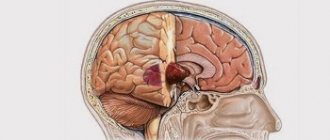This article was developed under the heading: Psychology.
Section: Feelings.
Hello, dear readers! Empathy in psychology is considered as the ability to consciously understand the emotions and feelings of other people. An empathic person has compassion for everyone who needs comfort and rejoices with everyone else in moments of delight. Today we'll talk about empaths. And to be more specific:
- I will tell you in simple words what empathy is;
- We will take a psychological test to determine your level of empathy;
- I will give you 40 character traits of an empathic person;
- Let's find out what types of empathy there are;
- Let's talk about how to behave with an empathic person;
- And how to develop this amazing ability to feel the state of another person.
Empaths are very precious people!
What is empathy
In simple words, empathy is the ability to empathize, sympathize with another person, any living creature and even a plant.
Moreover, such empathy is a conscious action. The person remains in the real world and also looks at the situation or some things realistically. An empath is a person who (empathetic) consciously projects the feelings of another onto himself. He not only shares his feelings with someone, he is able to understand the depth:
- grief;
- joy;
- despair and melancholy;
- fear.
To one degree or another, empathy is characteristic of all people. Surprisingly, psychologists around the world believe that most hardened criminals - murderers, robbers, maniacs, all of them have a very strong empathic ability.
When answering a survey about who these empaths are, we can say that they are all of us. It’s just that each person has a different level of it. Thus, a young mother may experience the pain and fear of a child who will have to stay in an unfamiliar place for the first time. For example, in kindergarten, alone, without her support. At the same time, the child’s father may not experience such fear. He does not have a high enough level of empathic abilities. Which does not allow you to feel the situation and apply it to yourself. He simply does not feel how scary it is for a baby who is left without parents for the first time.
Empathy works best with people close to you. We empathize with them the most. However, not all people are empaths. Some, no matter how much they want, cannot sympathize in such a way that this someone really feels supported.
Interestingly, empaths are able to empathize and react sharply not only to events that occur in the same reality as them. They can even empathize with the characters of a work or film. They are easy to spot in the cinema hall - they cry after the show (they are in a bad mood if the ending of the film seemed sad) or, on the contrary, they laugh loudest of all. The same thing happens when reading books. So, if on the subway you see a person holding a book in his hands, smiling from ear to ear or vice versa, you probably have a very strong empath in front of you.
Empathy is inherent in every person to one degree or another!
Examples of empathy
You can empathize in different ways, because situations in life are completely different from each other. At the same time, it is worth distinguishing pedagogical skills from psychological ones:
- Psychologist is an empath. When talking with a patient, he determines his emotional state, carefully listening to problems, and providing increased attention.
- The teacher is an empath. When working with children, he is able to delve into the needs, feelings, and personal characteristics of children, without challenging their point of view, but only unobtrusively guiding them on the right path.
- The actor is an empath. The profession obliges you to get used to the role, portraying characters with all their feelings, emotions, and experiences. This is a kind of acting, but the audience begins to believe, tracking the behavior on the screens, in the theater.
The Scientific Explanation of Empathy
The term empathy, unlike, for example, the term “compassion,” is not associated with a specific emotion, denoting the fact of empathy for any emotional state, regardless of its nature. The introduction of this term into the scientific community was due to Edward Titchener and Sigmund Freud. In 1905, Freud defined the ability to empathize as the ability to put oneself in the patient's situation in order to better understand him and obtain material for comparison. Freud compared his own state during the period of empathy with the state of the person he was experiencing.
Over the years, scientists have discovered that the level of empathic abilities depends on the mechanism that triggers them. So they distinguish:
- Emotional empathy associated with the desire to project and imitate the motor and affective reactions of another person;
- Cognitive empathy, manifested in people who are able to compare, draw similar parallels, and use intellectual abilities in their usual activities;
- Predictive empathy, based on a particular person’s ability to predict another person’s reaction to a given situation.
Read more about the types of empathy below. Its special forms are empathy, as the opportunity to experience the same emotions as another person. And sympathy, which manifests itself in the form of expressing one’s state regarding the experiences that have gripped another person. Examples of empathy can be easily observed in everyday life, for example, on public transport.
Empathy applies to the entire spectrum of feelings!
Diagnosis of empathy
The beginnings of empathy can already be observed in preschool children. By school age, the basic ability to empathize and understand other people’s feelings is fully formed.
To determine how developed this skill is in a person, psychometric diagnostics are carried out:
- diagnostic questionnaire of I. M. Yusupov;
- Boyko's test for empathy;
- Questionnaire “Level of Empathy” by Kosonogov.
Testing can be combined with each other or used separately. They are also supplemented by a personal conversation with a psychotherapist, which allows you to understand how well the person being interviewed understands other people’s emotions.
Brief characteristics of an empath
In short, an empath is a person who will always find the right words of consolation and support, cry and laugh with you, listen, and help if necessary. It’s good to have such a friend or girlfriend, a loved one. Let's talk about the signs of an empath by which he can easily be identified in more detail.
Empaths make great friends!
Willingness to help
Empathy manifests itself in the desire to provide help if it is needed. An empath helps selflessly. He likes to see how the situation improves, how thanks to him a person has the strength to live, create, and work. Such people do not expect gratitude and never take offense at those who “do not remember kindly.” True, there are exceptions. Some empaths use their ability to improve their self-esteem. But the feeling of moral satisfaction is more of a pleasant bonus than what a person strives for when helping a friend or even a stranger.
Empathy is almost always a selfless character trait!
Listening skills
People love to talk about themselves and their own problems. At the same time, not being delighted by anyone else’s attempts to complain about life or talk about the difficulties that have arisen. The exception is empaths. These people are the best listeners you can imagine. They have no desire to judge the narrator or lecture him. On the contrary, they will find words with which they can explain even the most unsightly act. And in such a way that you will immediately feel better. You will feel important and your mood will improve. Empaths are excellent advisors.
You definitely have at least one empath among your friends. Remember your friends!
Active empathy
Empaths experience the suffering of others as if they were their own. They don’t sleep, they are depressed, they lose their appetite. From infancy, an empathic child should be taught to control his own emotions. Otherwise, his ability to empathize with others will be to his detriment.
Empaths care about you as if they were themselves! If not even more!
Ability to reflect
It is important to learn to reflect; many empaths do this quite well. Therefore, they not only understand others well, reading their emotions, but also themselves. Self-analysis helps to cope with the emotions adopted from another person. And don't let them overwhelm you.
Correctly interpreting your feelings is about them!
Developing a Sense of Empathy
Empathy is not a gift from above or a supernatural power. To one degree or another, all mentally healthy people are capable of it. Although empathy is often innate, the ability to understand other people's feelings can be developed.
There are many simple group exercises to help you learn empathy:
- Guess the feeling. People are given cards with the names of feelings written on them. Participants take turns depicting the feeling they have with the help of facial expressions, and the rest of the group members try to guess what the person is trying to display.
- Mirror and monkey. Group members split up in pairs. One participant in the pair becomes the “mirror”, and the second becomes the “monkey”. The “monkey” mimics various feelings, and the “mirror” copies them. Afterwards, the members of the pair change roles.
- Telephone. All participants receive cards indicating an imaginary interlocutor: boss, significant other, parent, child or other person. Group members take turns imitating a conversation, and other people try to guess who the “conversation” is with.
Also common are exercises to copy the voice, gestures, and speech characteristics of another person. By performing such exercises in a group, together with other people, a person masters the skill of empathy, learns to create empathic connections and tune in to the same emotional wavelength as those around him.
What types of empathy is divided into?
It was already mentioned above that, depending on the reason, several types of empathy are distinguished. It is worth learning about each of them in more detail; such information will be useful to everyone. Because there are very few people who are absolutely devoid of empathy.
It should be mentioned that a person can use several types of empathy at the same time. But it happens that he is completely unable to understand the moods and feelings of those around him, and this leads to unpleasant consequences.
Basically, psychologists divide empathy into 3 types.
Cognitive empathy
This type of empathy is shown by people who have learned not only to empathize with an object showing a certain emotion, but also to analyze those actions or words, the situation that became the primary source of such emotion. Carrying out the necessary analytical operations, the empath actively uses the feelings that he experienced in the past, as well as his own experience. He carefully observes the interlocutor, taking into account his facial expressions, gestures, intonation of voice and even the expression of his eyes. Cognitive empaths have a good understanding of people, which helps them better build relationships with colleagues at work and at home.
They do this even during the first conversation!
Emotional empathy
An empath is so deeply immersed in the personality of another person that at a certain point in time he can lose himself. And even lose self-control, replace the interlocutor. Such empaths have a special nervous system. All emotions of others, especially if they are strong, are perceived as their own. This kind of empathic ability often gets in the way of people. They are constantly stressed and on the verge of a nervous breakdown. An emotional empath becomes unsettled even after listening to a news show or reading a book.
Such empaths need to learn to control their abilities, otherwise they may even cause harm!
Predicative empathy
The most convenient type of empathy for the owner. Predictive empaths are able to predict people's reactions to various stimuli. They are guided by logic, common sense and the instinct inherent in them by nature itself. They can understand how the interlocutor will act in a specific situation even before it arises. This helps to never invade someone else's personal space and avoid related conflicts.
Any of the species will perfectly feel all your experiences.
Types of empathy
Empathy is a necessary attribute for some professions. Psychotherapists and psychiatrists have empathy when communicating with their clients, listening and trying to understand their condition. An empath is able to copy the facial emotions of another person, consciously and without appropriating such feelings, perceiving them as his own. Taking into account the varieties of empathy, it can be weak, average, professional, or completely absent. Feelings can atrophy and disappear in people over the years if you stop trying to engage in self-development.
Experiences vary by type. Experts highlight the following:
- Emotional look. Such empathy is the mastery of the feelings of the interlocutor with emotional perception.
- A cognitive type in which other people’s feelings are perceived during the selection of analogies, parallels, and comparisons.
- Predicative view. Such empathy is the ability, in a particular case, to predict the response and emotional response of the interlocutor.
Reference! Weak empaths often suffer from headaches and physical exhaustion, because they begin to perceive other people’s problems as their own, driving themselves into stress and depression.
Professional empaths are able to quickly recognize the hidden and complex emotions of another person, the ability to lift their spirits and even relieve them of pain. There are only a few such people in the world.
Levels of empathy in psychology
The ability to empathize is inherent in all people. But not everyone actively uses it. And some don't even know about its existence. To test the level of empathy, psychologists use special psychological tests for empathy. The most popular testing methods were developed by I. Yusupov and A. Mehrabyan. We also developed such a test. You can find out your level of empathy below.
The implication is that everyone has empathy. Some people just have more and some have less.
High level of empathy
People with high levels of empathy feel other people's emotions more strongly than their own. Because of this, their psyche suffers. They end their days in a psychiatric clinic. Fortunately, a high level of empathy is not common; the condition is easily identified and corrected by a psychologist.
This is called hyperempathy. It is characterized by:
- Excessive generosity. He will give away his last shirt. And to support a friend in trouble, he will walk tens of kilometers;
- Amazing sincerity;
- Immunity to insults. He does not remember evil and often steps on the same rake.
This level is also characterized by softness of character, which is often perceived as weakness and a good chance for manipulation. A gentle person is a godsend for scammers and people trying to shift their responsibilities onto the shoulders of others.
Such people themselves are very vulnerable. Appreciate them!
Average level of empathy
Most mentally healthy individuals have the ability to empathize to one degree or another. Therefore, we can say that half of the world's population is at an average level of empathy. Which manifests itself in the following forms:
- The desire to listen and understand the interlocutor;
- The ability to put oneself in the place of another, to imagine his emotions;
- Understanding and empathizing with the suffering of others.
Average empaths are balanced and mentally healthy. Unlike people with a higher level, they worry less and are able to control their own feelings. They don't let someone else's perception of the situation ruin their mood.
Most people on the planet belong to the average level!
Low level of empathy
Lyuli with a low level of empathy are also mentally healthy. However, they are not able to empathize with anyone. Other people's tears and even laughter don't touch them much. They rarely show their own emotions. An empath's primary thoughts and feelings are focused on themselves. And he doesn't care about others. The reason for the low level of empathy should be sought in undeveloped behavioral skills.
A person who does not know how to communicate quickly gets lost in a new team. He develops negative feelings towards those around him who are trying to stir him up. The result is disappointment in work and leaving for a place where you don’t need to communicate with people. People who lack even average empathy are often (but not always) called introverts. That is, withdrawn into themselves. They try to stay away from old people and children, they scare them. And also from areas of activity in which communication becomes the key to success. For such empaths, negative emotions are mainly associated with criticism. They just can't stand it. But the outburst of anger associated with an unpleasant word spoken to the empath quickly passes.
People with low levels of empathy may not notice another person's problems at all!
How to find out your level of empathy
You can assess your level of empathy yourself, but it is difficult, and the assessment may not be objective. Therefore, special tests, which were already mentioned at the beginning of the section, will help you find out your level. Our team of psychologists, especially for you, has developed just such a test. After passing this test, you will find out your level and also receive a short description.
Signs of empathy in a person
Psychologists identify the following signs of empathy:
- The desire to help anyone, regardless of their own employment and the current situation. In the presence of emotional upheaval, they are prone to loss of self-control and an adequate assessment of current events.
- The desire to provide help without selfish goals and the expectation of gratitude to oneself. The main manifestation of the feeling of empathy is selfless friendship, the ability to empathize and sympathize with other people, regardless of whether the person was thanked in return or not.
- The feeling of empathy is closely related to the emotions and sensations of other people. Each person can talk about their own problems and experiences for a long time, but many people do not care about the feelings of their interlocutor.
- An empathetic person observes the emotional state of the opponent and listens carefully to his words. Such people do not condemn their interlocutor and do not criticize him. With such people, mental well-being improves and self-esteem increases.
- The sincerity and depth of empathy depends on the level of empathy. The feeling of someone else's pain is equated to one's own, which causes suffering in a person, disturbance of appetite and sleep. If you feel too deeply, depression can occur.
An innate quality can benefit people or cause harm. It all depends on how a person uses it.
Test to determine the level of empathy
Time is Up!
Time's up
In fact, everyone can analyze themselves and roughly understand their level.
The meaning of the basic elements of empathy
The ability to understand others is often completely equated with empathy when spoken about in simple terms. In fact, this is only one side of its manifestation in life, allowing one to accurately determine the state of others. Harvard University psychologist Daniel Goleman identified five basic elements of empathy and outlined the role of each of them.
Understanding other people
The most understandable component for many. It consists of paying attention to non-verbal signals, taking into account the needs and perspectives of other people. Allows the empath to put himself in the place of another, to better understand his situation.
Political awareness
It manifests itself in the perception of power relationships and the formation of a reaction to them. It often comes down to the ability to recognize the manipulations of higher ranks. In fact, it reveals itself from another important side: it allows you to better navigate organizational relationships and achieve greater heights.
Service orientation
Defines an empath's skill in correctly assessing someone's needs in order to provide truly effective support. The job reflects the employee's ability to understand customer needs and successfully meet them. In life, it manifests itself in the ability to help one’s neighbor find the most correct solution to problems in accordance with the characteristics of his life circumstances.
Development of others
It consists of the ability to help others grow in any area. A striking example of this is the ability to competently encourage another. This also includes the ability to imagine a constructive response to someone's actions, which helps determine the direction of growth for the future. This element is especially developed among professional coaches.
Acceptance and application of diversity
The ability to use people's strengths, recognizing that each of us is good in our own way. Assumes a respectful attitude towards others in any situation and regardless of social status. The ability to accept differences in the skills and personalities of others, and to apply them competently in organizational activities.
Is empathy good or bad?
Empathy is neither good nor bad. This is what a person is born with or what he acquires as he grows up and communicates with other people. Of course, being overly sensitive to other people's emotions is not very pleasant, but such people always have many friends. And also, by listening to others, advising, grieving and rejoicing with others, they make this world a little better.
People whose sense of empathy is poorly developed also have nothing to be sad about. The nervous system of introverts is stronger and works better. This means that if a truly difficult situation arises, you will be able to use all its resources to the fullest. Takei people will survive stress with fewer losses.
Without empathy, we wouldn't be human at all!
Empathy and assertiveness - what's the difference?
There are common features between empathy and assertiveness. Both can be developed, and at the core of these qualities is respect for others and for oneself.
At the same time, assertiveness is more directed at oneself than at others. It is expressed in the ability to maintain confidence and independence, remaining part of society and not fencing off from it. This is the ability to be in harmony with other people, but not to be influenced by them.
Empathy, on the contrary, is aimed at others and consists of empathy, sympathy and the transference of other people's emotions to oneself.
How to develop empathy
Being an empath is not as bad as not feeling anything. It is worth repeating that there are no completely insensitive and at the same time mentally healthy people. There are people with low levels of empathy. But with some effort, it can be increased.
Now I will give you tips on the easiest way to develop empathy!
Expand your social circle
To increase your sensitivity to other people's emotions, communicate with more people. How can a person understand that he can sympathize and empathize or not, if his circle of communication is limited to close relatives and store clerks? Expand your social circle. Include, for example, your housemates, Instagram followers, and work colleagues. It should be remembered that communicating with a large number of people is always associated with stress. Therefore, I do not advise you to suddenly go out into the world.
This is difficult, but very important!
Learn to listen and hear
If a friend tells a completely uninteresting book, movie, TV series, or once again retells the story of how she met her future husband, you really want to interrupt her and tell her about your own problems. But what makes you think that your story will be more interesting? Perhaps because what is told will concern you yourself. Touch your interests, feelings and desires. A person with a low level of empathy will interrupt a friend's story without regret, refusing to respond to any complaints related to it. An empath of medium and high level, if other circumstances do not prevent this (you need to rush to catch the bus, go to pick up the children at school), will definitely listen to the end. And he will even give advice if needed. To become just such an empath, learn to listen and develop patience and understanding that the other person is no less important. After all, it is not always good to indulge your own selfishness.
This may also seem difficult, but this is only at the beginning. Then you will be sucked in!
Read works of fiction
Fiction books are filled with the experiences of the characters. D'Artagnan sobs at the body of the deceased Constance. The royal general Richard, the hero of Daphne du Maurier's book, is angry at the nobles who did not support his plan to liberate Cornwall. Young Elizabeth feels deeply unhappy that Mr. Darcy did not appreciate the beauty of her sisters. The more works like this you read, the better empath you will become. The main thing is to choose the right books, whose characters really make you want to empathize with them. It will not be possible to develop your feelings with the help of a work that fails to interest you.
This is probably the simplest thing.
Communicate in stressful situations
Many introverts avoid any stressful situations. They run away from crying people and never rush to be the first to console a child who has broken his knee. The next time you want to act in the same way again, overcome yourself and stay where you are. Perhaps you will be able to go further and even communicate with a person who is not experiencing the most positive emotions.
Interestingly, low-level empaths also run away from positive feelings. Therefore, if a friend invited you to a party, and your work colleagues are throwing a party, it is necessary and important for you to go there.
And this moment is the most important!
Developing empathy in children and adolescents
- Of course, empathy in children is directly dependent on how much their parents can sympathize and empathize. Receiving a feeling of love and warmth from adults, the child thus passes them through himself, learns not only to understand them, but also to accumulate them, sharing them with others.
- It is common for a child to project his experiences onto others and try to find them in someone. This is how empathy .
In children
- Reaching adolescence, a child especially needs mental and emotional contact with his parents, and its absence prevents him from comprehending and improving the world of feelings and experiences. That is why trusting, friendly relationships in any family are so important.
Tips if you are an empath
If you are already an empath, then it is important for you to remember the following simple rules that will make your life much easier:
- Loneliness is not always a bad thing; devoting all your free time to other people will burn you out and even drive you crazy;
- The emotions that overwhelm you can be expressed in dance, drawing, song;
- Dream! Sometimes it’s useful to dream, even if it’s about the impossible;
- Don't limit yourself to important things. This will lead you to depression;
- It is impossible to always do only what is interesting. But since it is interest that fuels your desire to complete a particular task, before you start work, understand why a particular task is interesting.
- Communicate more with animals. Go for a walk in the park or forest. This will help you cope with the burden of emotions.
Stick to the rules and you will feel better!
Is it possible to develop empathy?
Scientists have found that by nature we all have a tendency to experience it. At the same time, there are several levels of manifestation of empathy in communication:
- Short.
- Average.
- High.
- Excessively high.
During life, under the influence of various circumstances and age-related psychological changes, one level can be replaced by another. Also, emotional experience and personal attitude towards it have a great influence on the degree of manifestation of empathy. If desired, you can work on it effectively.
Who to turn to if empathy is difficult to live with
Empaths are frequent guests in the office of a psychologist or psychotherapist. They are often thrown out of their usual rut by the weight of guilt for not being able to help someone. Depression and nervous disorders of various levels invariably visit those who are too carried away by other people's emotions.
It is important to contact a specialist in time who can teach you how to cope with overwhelming feelings. He will convince you that it is impossible to empathize with everyone with the same degree of depth. That you shouldn't be too upset that the main character of the book didn't get what he wanted. And the neighbor got into trouble.
Don't be afraid to consult a psychologist!
Characteristic manifestations
Manifested by the ability to recognize the feelings of other people and empathize with them
The following signs may indicate that a person has developed empathy:
- the ability to recognize another person’s feelings on an intuitive level;
- the ability to feel someone's role;
- the ability to assess a situation through the eyes of another individual;
- experiencing the emotions that another person is currently experiencing;
- the ability to agree with someone else's point of view.
Many people want to develop this ability in themselves or want their children to develop it. However, it must be borne in mind that empathy has not only advantages. It often leads to severe suffering. In order to resist other people's negativity, you must have a mature mind and a strong character. If a person wants to develop this ability, he must take into account all the advantages and disadvantages.
The positive points include:
- prospects for professional development;
- providing assistance to those close to you;
- the impossibility of being deceived;
- the ability to eliminate conflicts and prevent their development.
Negative points include:
- emotional burnout;
- risk of mental disorder;
- increased anxiety;
- problems communicating with others;
- the likelihood of causing moral pain and the ability to resist it.
Why is it difficult for an empath to find a partner?
Some empaths have a hard time finding a partner. This is related to:
- A reverent attitude towards personal space. People who are overloaded with other people's emotions sometimes need a break from everyone, including their partner. Not everyone agrees to treat a life partner with respect and understanding who periodically disappears for several hours. Goes for a walk alone or locks himself in his own room.
- Excessive vulnerability of empaths. They always think before they say something and expect the same thoughtful attitude from you.
- Empaths do not accept superficial feelings; they need to give themselves completely.
- You need to believe in an empath and constantly support him. Criticism is poorly received.
If an overly sensitive nature does not want to receive guests, go to a friend’s house, or generally communicate with anyone, you should not force it. An empath can easily become the life of the party, but only if he wants it himself. He certainly needs communication. But not imposed from the outside. Also, lying is never a good foundation for a relationship. And in relation to empaths, it is also dangerous, since such people definitely will not tolerate liars. Conflict cannot be avoided.
Thus, the prospective partner needs to be truthful, considerate and compassionate. That is. also have empathic qualities.
An empath can close himself off to everyone!
Where does it come from?
Neuroscientists blame mirror neurons . These are nerve cells that interpret information received from the world around us.
For example, if there is a person standing opposite us who is sad, then the visual and auditory analyzers receive the appropriate information about this and transmit it to these neurons. Mirror neurons make their owner feel the same, but to a lesser extent.
It is the mirror cells in monkeys that force their relatives to repeat the same actions one after another (monkeying). For the same reason, we like to watch programs about luxurious life (flip through magazines about the “hard life” of celebrities).
This simply makes it possible to feel at least a moment’s joy in life, as if we were in the place of a celebrity (a given celebrity).
It is noteworthy that the development of empathy begins from birth , when the baby perceives the world around him only on an emotional level. If his mother smiles at him, he will unconsciously smile back at her (acting like an idiot).
When parents explain to an older child that they are now sad or happy for such and such a reason, this also helps the child understand how feelings work and how they can be “read” by faces, movements, words, and facial expressions.
Autism is an extremely low level of empathy in a person
By the way, one of the causes of autism is a disorder in the structure or number of mirror neurons. Therefore, it is very difficult for autists (people with almost zero empathy) to understand how people around them feel and how to interact with them.
As a result of this, the child’s socialization suffers - it is difficult for him to communicate with peers in the yard, at school, or with a salesperson in a store.
Therefore, from a very early age, such children need to be given special attention in terms of emotional development. They need to be told what is happening inside other people in terms of emotions and how it can all be “read” (by facial expressions, by gestures, by gaze).
It is also necessary to constantly ask the child how he feels; describe how it usually manifests itself externally on other people so that he can compare and contrast. Analyzing the main characters of books and films also has a beneficial effect on accelerating the path from autistic to empath.
Active listening is something that can also help develop “emotional sensitivity.” The point is that the listener asks clarifying questions to the person who is telling something. Thus, he learns more about the interlocutor, and he, in turn, opens up more. You can also switch places with your children in this “word game.”
How to Deal with an Empath
Knowing that a friend or girlfriend is a strong empath, you can build a relationship in such a way that there will be almost no controversial issues or omissions in them.
Empaths are always ready to help you!
He needs personal time
If you invite a friend for a walk, and she refuses, don’t be offended. She's just tired of talking. Not specifically from you, but from communication in general. This makes her seek solitude. For example, ignore phone calls and any calls for dialogue from friends and acquaintances.
And this is very important for him!
An empath is not your personal psychologist
An empath should not be used as a crying pillow on a regular basis. Over time, he will simply get tired and move away. Despite the fact that by nature such people are excellent psychologists, it is wrong to abuse their attention. And think about whether this friendship is real at all. If you just need someone to listen to you. Remember that an empath has feelings and emotions too. And he also wants to talk about them.
Empaths are touchy, although they don’t show it. Harsh words and quarrels take them out of balance for a long time. They force you to experience the same unpleasant situation over and over again.
You don't always have to tell him about your problems!
You must believe in him
If an empath is believed in, he can move mountains. Mistrust kills any initiative in him. Makes you worry about your own importance and your abilities. Such experiences have a negative impact on work and relationships with others, and a person can withdraw into himself.
In fact, you need to believe in any person. However, this is especially important for people with empathy!
Free expression of emotions
Empaths are good at reading emotions, so you shouldn’t hide your feelings from them. They will find out about them and will be offended by the attempt to withhold information.
An empath will easily understand if you, for example, flatter him.
Don't lie to an empath
Lying is also useless; the empath himself can pretend to believe the lie. Especially if it happens in public. But later there will be a scandal.
The phrase “Better the bitter truth than a sweet lie” fits here more than ever.
How to use empathy wisely
Empathy can help you build rewarding relationships with people. To do this, it is important to apply 2 strategic steps.
Step 1. You can quickly win over your interlocutor if you accept his point of view. As soon as you try to see the world through the eyes of your interlocutor, feel what he feels, then you will understand how to present the information.
To build a win-win dialogue, you need to prepare for it: collect information about the interlocutor, think about how to convey certain information.
Step 2. Tailor your message, information to the person. To do this, adjust your behavior and conversation to it. Use the information you learned earlier. Here connect wisdom and communication skills. By choosing the right words, ideas, and a friendly attitude, it will be easier for you to adapt to your interlocutor and achieve results in the conversation.
The competent use of empathy is required not only in negotiations. Posts on social networks, letters, meetings, relationships will also be “on top” with the correct use of empathy and “getting used to” the emotions of another person.
This quality is undoubtedly important in management and leadership. When you understand your subordinates, the people with whom you need to interact, then you will be respected and your opinion will be listened to. This is what is important for any leader.
How is empathy different from sympathy?
Empathy and sympathy are close concepts. They are based on a feeling of compassion and the possibility of sharing his experiences with someone. But empathy is at the same time something more, since it involves expressing compassion to any living being. Whereas we sympathize with only a few.
Case in point. Differences between sympathy and empathy.
Liking is not about expressing a common point of view and common emotions. It's personal. It has little to do with experience and requires no effort. After all, everyone knows how to sympathize with people. So, we sympathize with a divorced father who is trying to achieve regular meetings with his children. Single mother who lost her job. Even the neighbor's son, who failed the exam. But if we've never been divorced, lost a job, or failed a test, then it will be difficult for us to experience empathy. The exception is if the empath has already encountered similar cases. Even in the books, he knows how to act and therefore can show both sympathy and empathy at the same time.
Empathy = sympathy?
Very often people use the word “empathy” as an inappropriate synonym – “sympathy”. But these are different concepts (although sometimes overlapping) and they carry different reasons and motivations.
For example, an altruist or philanthropist feels a desire to help another. They want everything to work out for him, everything to be fine, and they will try to solve his problems with him (or instead of him), pull him out of apathy, and cheer him up. This is a sincere show of caring. They are just that way by nature and help everyone.
Or pity. For a moment, you suddenly feel sorry for the unfamiliar beggars in the passage who are trying to collect money for food. They tossed a couple of coins and moved on. You didn’t plunge into their “inner world”, didn’t “penetrate their soul” and didn’t feel the whole bouquet of their emotions.
Empathy is not sympathy or regret, but an ability given from above or developed independently to immerse yourself in the state of another, to understand the emotions he is overwhelmed by .
At the same time, the empath may not have the desire to help and show care at all. It all depends on the person. For example, we all “see” a beggar, but not everyone will hand him a coin. As you can see, these are completely different concepts.
Example. You saw a fat person and realized that he urgently needs to lose weight, otherwise he may soon have problems. But you won’t run to him with this and lead him by the hand to a nutritionist. You may simply not care what happens to him (a misanthrope can also be a sensitive empath).
Empathy is the ability (ability) to feel the state of other people, but it does not at all mean that this will lead to some actions aimed at the benefit of the person in whose shoes you have climbed. Maybe even the opposite. Sociopaths, for example, use their understanding of people exclusively for their own selfish purposes.
It is simply the ability to lift the veil over the feelings of other people, to understand their emotional state. Whether you sympathize with them or not depends on the individual.
What should people with excessively high levels of empathy do?
We cannot ignore the problems of people who have an overly pronounced ability to feel the state of others. When communicating, they tend to lose themselves in the problems and feelings of their interlocutor. As a rule, this happens unconsciously. It ends with a feeling of fatigue and emptiness, and sometimes even physical discomfort.
Some even manage to drag responsibility for the condition of others onto themselves. This state of affairs in the eyes of experts requires immediate work to reduce the level of empathy. Otherwise, a person risks simply “burning out” from emotional stress, which often entails serious health problems. The following advice from psychologists will help you avoid this:
- Work on realizing your own worth. You must have your own goals and motives in life, the achievement of which is important to put above the needs of others. Help as much as possible and within reasonable limits, controlling the level of your resources. Learn to respect your own needs as much as those of others.
- Take time to think. Having identified an excessive tendency towards empathy, make it a rule not to rush to react to the position of your interlocutor. Practice the ability to perceive everything that happens with detachment. Only after conscious deliberation form a reverse reaction.
- Always be realistic about the benefits of personal behavior strategies. Being infected by other people's difficult emotions will not help either you or your interlocutor. Does it make sense to succumb to suffering from someone else's pain, helplessness or panic? Certainly not. Therefore, having shown a moderate degree of complicity, learn to switch to finding a solution. Don't let the stage of excessive emotions overwhelm you. This is more trouble than good.
Recommendations from psychologists for developing empathy
- Use group exercises. Being in a close-knit team allows you to quickly and easily improve your ability to understand other people. Efficiency is due to the natural expansion of ideas about the possible manifestations of different feelings. Try several variations for your workout. First, choose a mate and become her “reflection”. The partner should not talk about his feelings, he can only demonstrate them with the help of facial expressions and movements. Your task is to copy them. Then switch places. An exercise in which one of the participants demonstrates emotions, and the rest must guess and describe them, is also effective.
- Work with your stereotypes. Sometimes our prejudices and preconceptions do not allow us to comprehensively assess the situation. Therefore, what is happening to another person may simply not fit into the head due to the existing framework in the worldview. Work on expanding your horizons, learn to accept forms of expression of feelings that are not only convenient and understandable to you. Conversations with strangers who are not part of your usual social circle will be an excellent help in this.
- Improve your listening skills. The feeling of empathy requires internal permission to accept the feeling of another, which comes only with attentive participation in the conversation. The appearance of being nearby will not allow you to feel the situation. Listen to others with genuine interest and attention, and don’t be afraid to ask clarifying questions. Do this delicately and appropriately, without interrupting the other person too often or impatiently. It will also be useful during a conversation to mentally put yourself in the place of another and note the sensations that arise.










